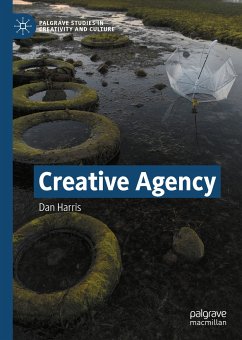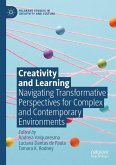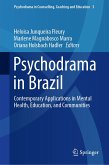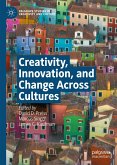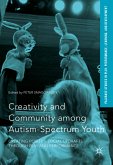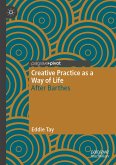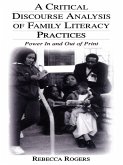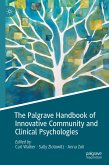This book offers a socio-cultural examination of contemporary creativity studies. Drawing heavily on posthumanist, new materialist and affective theoretics, the author argues in favour of an expansive and sustainable approach to creativity which contributes to an emergent 'creativity studies' inter-discipline. It seeks to establish a broader consideration of creativity in socio-culture, that extends beyond, or indeed refutes, the narrowing aperture of entrepreneurship and innovation as synonyms for creativity in economic, cultural and educational contexts and discourses. Drawing on multiple case studies of creative relational and creative ecological empirical research, this book integrates a concern for personal, planetary and geo-political collaboration, as an antidote for 'innovation for innovation's sake'.
Dan Harris (formerly published as Anne Harris) is Professor, Associate Dean, and Australian Research Council Future Fellow at RMIT University in Melbourne, Australia. They are an international expert in creativity education and creative methodologies through a combination of creative arts practice and creativity scholarship. Dan's texts Creativity and Education (2016) and The Creative Turn (2014) are widely-cited texts in the study of the commodification of creativity, its conflation with innovation and creative industries, and in lifespan creative education as a core component of a creative ecologies model.
Dieser Download kann aus rechtlichen Gründen nur mit Rechnungsadresse in A, B, BG, CY, CZ, D, DK, EW, E, FIN, F, GR, HR, H, IRL, I, LT, L, LR, M, NL, PL, P, R, S, SLO, SK ausgeliefert werden.
Es gelten unsere Allgemeinen Geschäftsbedingungen: www.buecher.de/agb
Impressum
www.buecher.de ist ein Internetauftritt der buecher.de internetstores GmbH
Geschäftsführung: Monica Sawhney | Roland Kölbl | Günter Hilger
Sitz der Gesellschaft: Batheyer Straße 115 - 117, 58099 Hagen
Postanschrift: Bürgermeister-Wegele-Str. 12, 86167 Augsburg
Amtsgericht Hagen HRB 13257
Steuernummer: 321/5800/1497
USt-IdNr: DE450055826
Bitte wählen Sie Ihr Anliegen aus.
Rechnungen
Retourenschein anfordern
Bestellstatus
Storno

